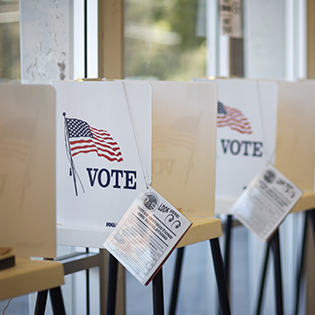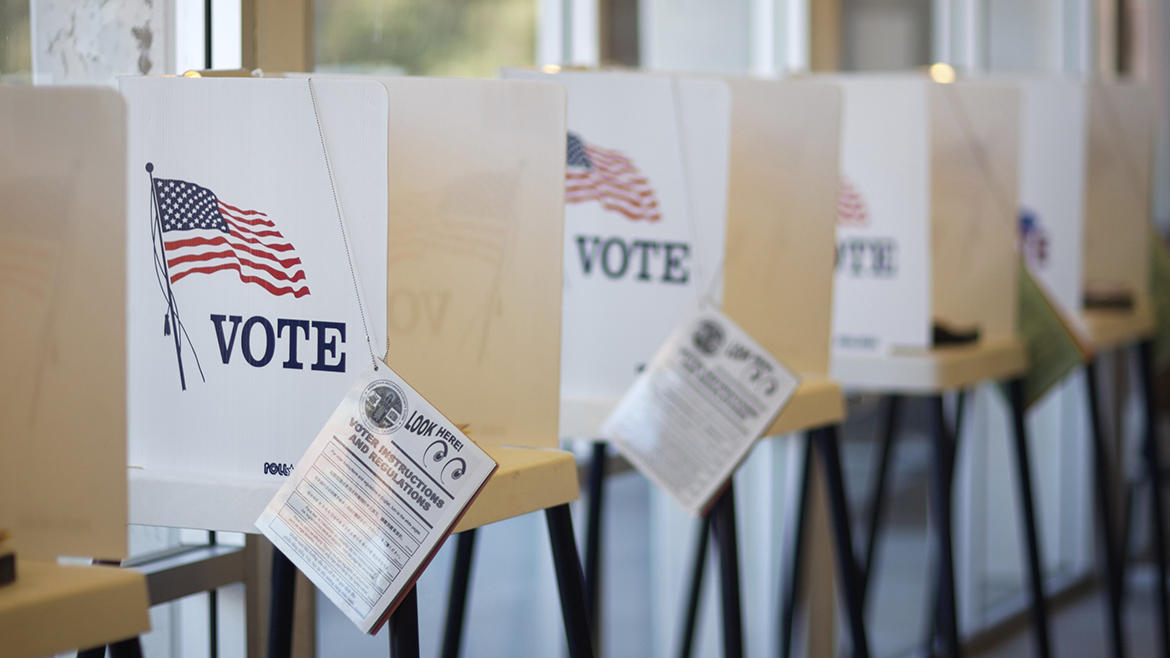A Bipartisan Look Forward


The April 5 municipal election confirms Columbia’s continued drift to the political left and, like the county it is a part of, the overwhelming dominance by what, in the city, could become a single party political machine. A “non-partisan” absurdity that eschews conventional labels, Columbia’s seven-member city council now includes six liberals (Democrats) and a lone conservative (Republican), who is under threat of being recalled. Just like Boulder, Madison, and other major left-leaning university communities, Columbia continues to thrive because it is celebrated for its diversity, its quality of life, the activism of its citizens, and other amenities.
Yet it is frustrating for conservatives as they see their influence wane, stymied by repeated failures year after year to win seats in city council races. Otherwise well-funded, conservatives are at a disadvantage as long as public school finance issues share the ballot with races for municipal offices. This time, support was surprisingly strong for both the public school levy increase and the bond issue. For conservatives, the recent council election was a ham-handed train wreck where the proxy candidates in the two ward races never had the remotest chance of winning. If conservatives ever want to win another council seat, they will have to find a candidate with gravitas to step forward and pull out all the stops. Now, the losers are in position to do something shrewd. They should get over their losses and line up with the winners on the issues that the majority of residents — liberals (Democrats) and conservatives (Republicans) — have decided are important.
Columbia now finds itself at a challenging economic crossroads. Mindful of the “creative destruction,” as first enunciated by economist Joseph Schumpeter (1883-1950), much of what we have held dear has been overturned with the advent of the Internet and the revolutions wrought by it. Potentially painful adjustments at Old Mizzou could end up harming the region’s economic base, impacted by reduced residential enrollment, staff layoffs, the fates and fortunes of the Tiger athletic program, shifts to off-campus learning, and the vagaries of legislative appropriations. A fortunate, but less noticeable, boost will come from gains at Columbia and Stephens College, MACC, CMU, Westminster College, and William Woods University, among others. While Columbia remains a preeminent locus of health care services for the region, the overall system of medical care is in transition, with a future no one can accurately predict.
Retail activity is soft, marked by the closing of Macy’s; enhanced shopping opportunities in surrounding communities; and the rapid, unstoppable growth of online sales, exempt from taxes and the concomitant reduction in revenues to the city, county, and state. Envied by others for our low unemployment rate, we should brace ourselves for other possible store closings while wondering about the future of the Columbia Mall as patterns of retail activity undergo change. With its growing presence in Dallas, State Farm Insurance — here since 1956 — could easily shutter its Columbia office, and there’s not a thing we could do about it. Jerking CVS around the way city officials and the council did was hardly encouraging to outsiders who might otherwise find Columbia a desirable place to do business. Then the unease continues about overall citizen safety as some opt for country living while suburban communities like Hallsville and Ashland, and reduced commuting costs, increase the attractiveness of places here and in the surrounding counties.
To repeat — and this is important — as long as public school issues share the ballot with races for city council seats, conservative candidates will be defeated again and again. That’s because there is an overwhelming support network — more liberal than conservative in nature — that includes thousands of Columbia school system employees, relatives, friends, and whoever else can be rallied for support. The lock on this has been further enhanced by the recent unionization of CPS teachers under a contract with District No. 93 in a collective bargaining agreement negotiated by the National Education Association (AFL-CIO) as well as support from other union locals.
Thus, the incoming mayor and members of the city council could end up serving in perpetuity, replicating the unassailable longevity of the Democratic Party machine that has dominated Boone County politics forever. Columbia conservatives will have to come up with better candidates and somehow figure out a way to surpass the overwhelming presence of liberal-activists, including CPS employees, et al., who will enthusiastically “get out” the vote every April on the first Tuesday.
Back to something shrewd. There’s agreement from all quarters politically that Columbia needs to beef up its police and fire services. But this will cost money at a time when finances are tight as revenue from sales taxes becomes less dependable. What better way to enhance emergency services than for everyone — conservatives and liberals — to come together to promote and pass another levy increase. The revenues from this would be used to hire more cops and firefighters. Imagine the potential as liberals and conservatives (Democrats and Republicans, if you will) decide to come together to collaborate and make a strong case for a levy increase to fund public safety enhancements. That would be something everyone — regardless of their political persuasion — could readily agree on.


